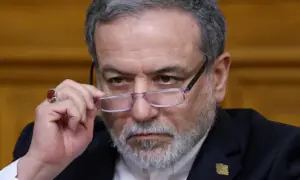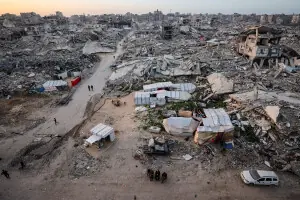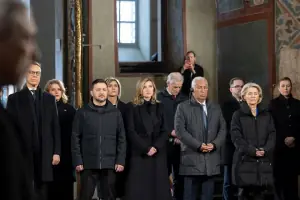External factors force pause in Iran nuclear talks, EU says
3 min readVIENNA: Iran and world powers will pause talks on reviving a 2015 nuclear deal due to "external factors", the European Union's foreign policy chief said on Friday, after last-minute Russian demands threatened to torpedo the otherwise largely completed negotiations.
"A pause in ViennaTalks is needed, due to external factors," Josep Borrell wrote on Twitter. "A final text is essentially ready and on the table."
Tehran on Thursday suggested there were new obstacles to reviving the deal. Washington underlined that it had no intention of accommodating Russia's demands, which it has said have nothing to do with the Iran talks. It added that a small number of outstanding and difficult issues were still yet to be resolved for a deal to be reached.
Parties in the talks had been expecting to conclude by last Sunday a deal that would bring Iran back into compliance with restrictions on its rapidly advancing nuclear activities, and see the United States rejoining the accord.
Nearly four years ago the then US President Donald Trump decided to leave the 2015 nuclear deal, and re-imposed sanctions on Tehran.
But last Saturday, Russian Foreign Minister Sergei Lavrov unexpectedly demanded sweeping guarantees that Russian trade with Iran would not be affected by sanctions imposed on Moscow over its invasion of Ukraine - a demand Western powers say is unacceptable and Washington has insisted it will not agree to.
Russia's envoy to the talks, Mikhail Ulyanov, dismissed suggestions that Moscow was the reason the talks had stalled, however.
"The conclusion of the deal does not depend on Russia only," he told reporters after meeting EU coordinator Enrique Mora. "There are others actors who need additional time and who have additional concerns, and they are being discussed."
He said he hoped the talks would conclude at the earliest time - but he could give no timeline for when they may resume.
Iran's foreign ministry said a pause in talks may create momentum for resolving any outstanding issues, but it insisted that external factors would not affect the will to move ahead with a collective agreement.
"Pause in #ViennaTalks could be a momentum for resolving any remaining issue and a final return. Successful conclusion of talks will be the main focus of all," Foreign ministry spokesperson Saeed Khatibzadeh said on Twitter.
Russia's demand initially angered Tehran and appeared to help it and Washington move towards agreement on the few remaining thorny issues, diplomats said.
But a sudden volley of public comments by Iranian officials including Supreme Leader Ali Khamenei on Thursday suggested the wind had turned.
"As coordinator, I will, with my team, continue to be in touch with all JCPOA participants and the US to overcome the current situation and to close the agreement," Borrell said, referring to the full name of the accord, the Joint Comprehensive Plan of Action.
European negotiators from France, Britain and Germany had already left a week ago as they believed they had gone as far as they could and it was now up to the United States and Iran to agree on the outstanding issues.
The negotiations in Vienna have limped on with just a fraction of the number of daily meetings that were taking place in previous weeks. Four Western diplomats had said the talks were all but finalised until Russia made its demands.
For the latest news, follow us on Twitter @Aaj_Urdu. We are also on Facebook, Instagram and YouTube.

























Comments are closed on this story.